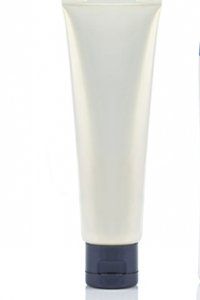You've heard it all before. Together, moisturizer and sunscreen comprise the foundation of a wrinkle-preventing, cancer-fighting, complexion-enhancing skin-care regime. Okay, fine, but that raises the inevitable chicken-egg question—which comes first?
One would think there'd be a universal order of operations for face product application, just like there is for math problems. But the truth is that not all experts agree on whether sunscreen should precede moisturizer, or vice versa. Some dermatologists insist that sunscreens should always be closest to your skin, which promotes absorption and ensures a uniform layer [source: Schultz]. But others recommend applying sunscreen last so that the water in moisturizers doesn't dilute its effectiveness [source: Begoun].
Advertisement
Yet other sources suggest that it depends whether the sunscreen is a chemical formulation, which reduces ultraviolet radiation penetration, or a physical blocker, which uses titanium dioxide or zinc oxide to deflect harmful rays. They generally recommend applying chemical sunscreens first to maximize absorption; physical sunblocks, meanwhile, can go under or over moisturizer [sources: Monroe, Self, Well+Good].
According to dermatologist Doris Day, the order doesn't matter as much as thorough, adequate application. "Just make sure you get both," she says. Day recommends a dime-sized amount of each product, noting that most people don't use enough of either. "With sunscreen, I like to put it on from the periphery toward the center," she explains. "Make sure you cover your ears and the area in front of your ears, which we often tend to miss."
There's always the option of dodging the issue altogether by choosing a moisturizer with built-in SPF. But Day advocates for using two separate products to avoid skimping on coverage, particularly in the summertime. If you do choose a moisturizer with SPF, opt for one with 15 or higher and scan labels for the term "broad-spectrum," meaning the product filters out both UVA and UVB rays [source: Holmes]. While a liberal amount of moisturizer with SPF should be enough for a few minutes of sunlight here and there, people who spend a lot of time outdoors should use stand-alone, water-resistant sunscreen and reapply it every two hours [source: Skin Cancer Foundation].
For more information on sun protection and moisturizing, check out the links on the next page.
Advertisement


